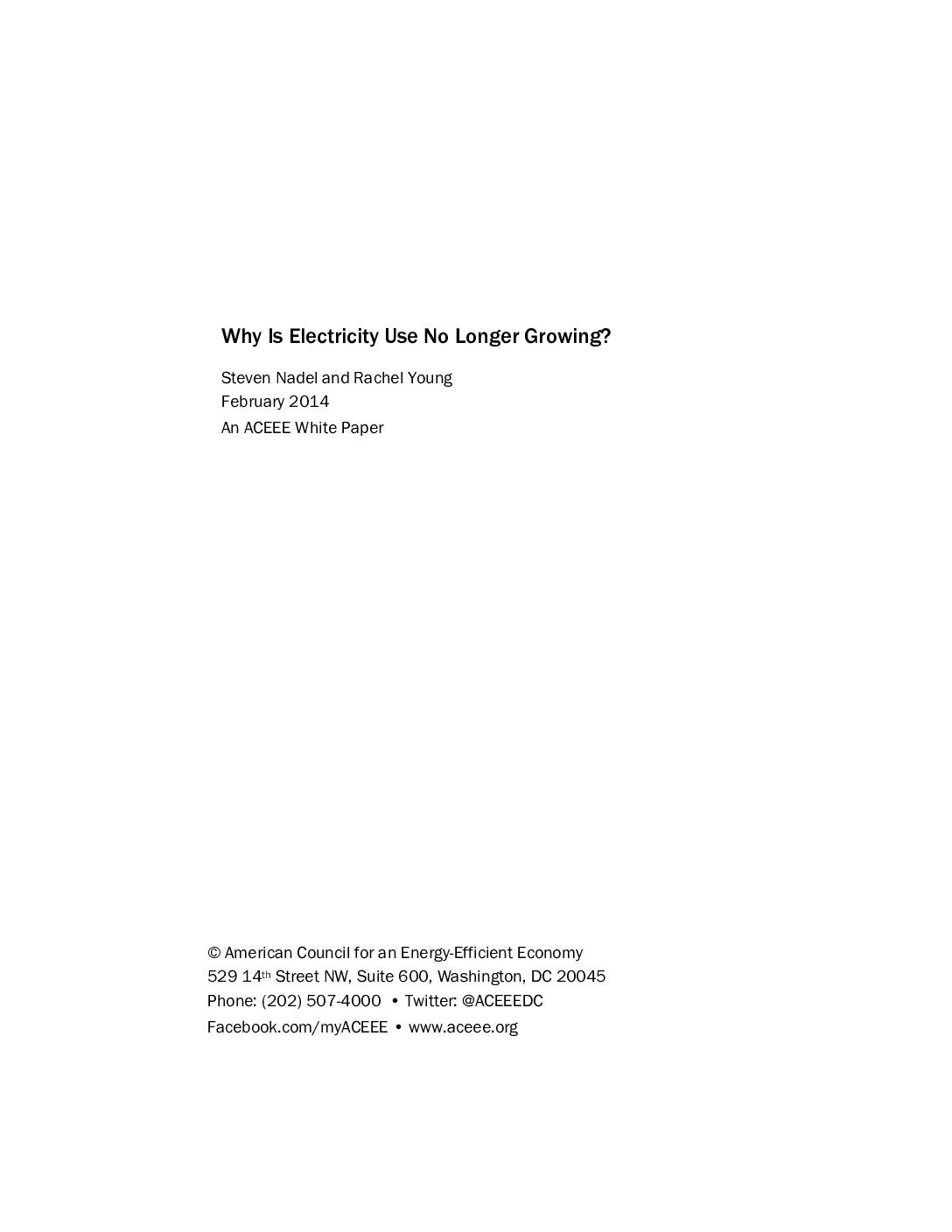Prior to the 1970s energy crises, electricity sales in the United States were growing by more than 5% per year, and as recently as the early 1990s, electricity sales were growing more than 2% per year. In the past few years, growth has essentially stopped: retail electricity sales in 2012 were 1.9% lower than sales in 2007, the peak year. Some observers have attributed this stalled growth to the 2008 economic recession, while others have suggested a variety of other factors. In this paper, we undertake several analyses to consider which factors best explain changes in electricity use in recent years. Our hypothesis is that the recession alone cannot explain the recent stagnation in electricity consumption. We instead hypothesize that electricity savings from energy efficiency programs and from other efficiency efforts such as appliance standards and building codes are having a broad national impact on electricity consumption in the United States, possibly contributing significantly to the recent decline in electricity consumption.
Our various analyses suggest that energy efficiency has likely had a substantial impact on electricity use. Our analysis indicates that over the 1993-2012 period, changes in electricity use were most influenced by energy efficiency programs and policies, warmer weather, changes in gross domestic product (GDP), changes in electricity prices, and long-term trends. Over the more recent period of 2007-2012, savings from energy efficiency programs and policies and from warmer winter weather appear to be the most important contributors to declining electricity use. The impact of energy efficiency is statistically significant for the residential/commercial sectors but not for the industrial sector.
Further analysis and more data are needed to better understand the contribution of energy efficiency versus economic and other factors, particularly in the industrial sector. Also, for all sectors, it will be useful to repeat the analysis in a few years to see if the recent decline in electricity use, and the contribution of energy efficiency to this decline, continue.
The factors influencing electricity use are complex. Our analyses suggest that energy efficiency has become an important factor in U.S. electricity consumption.
Share this

Sectors: Buildings, Cross cutting, Industry, Power sector, Renewables
Country / Region: Northern America, United States
Tags: electricity generation, energy, energy efficiency, impacts on systems and sectorsKnowledge Object: Publication / Report
Published by: ACEEE
Publishing year: 2014
Author: Steven Nadel, Rachel Young
